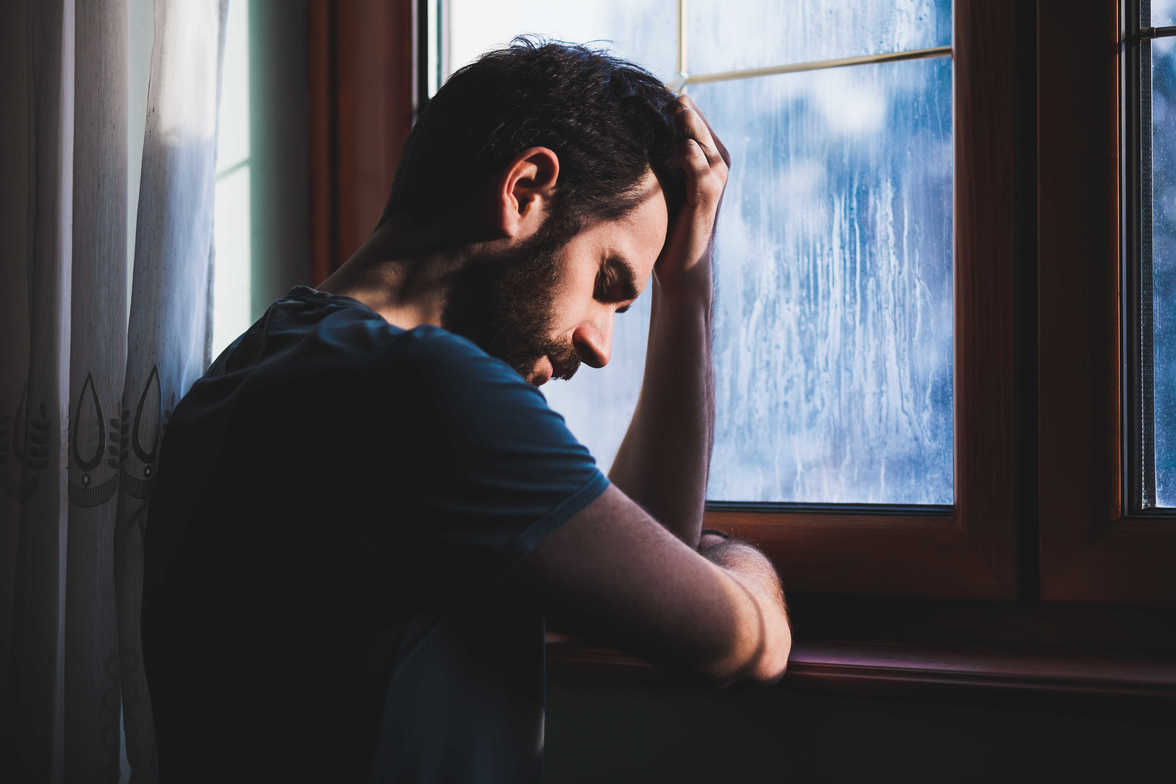
As social beings, we need connections with others to live, grow, and thrive. But the Covid-19 pandemic has made it necessary to isolate ourselves from the people and places that help us maintain the quality of our lives.
This isolation and loneliness can have deleterious effects on our health and longevity, but there is hope. Understanding social isolation and taking steps to alleviate it can help us feel better, stronger, and more confident in our ability to maintain social connections during the pandemic.
What is Social Isolation?
Social isolation is a condition that occurs when a person:[1]
· lacks a sense of belonging;
· has little to no engagement with others;
· has very few social contacts; and
· is deprived of fulfilling relationships.
Is social isolation and loneliness the same thing?
Social isolation and loneliness are related but they have different meanings. Social isolation is the number of contacts and relationships a person has and the depth of those relationships.[2] Loneliness (also referred to as perceived isolation) is a state of mind that occurs when a person feels alone, empty, or separated from others.[3] Social isolation can cause loneliness and unresolved loneliness can cause depression, which can lead to social isolation.[4]
What causes social isolation?
Social, economic, relational, and health factors cause social isolation. These factors are often interrelated and complex.
Social Factors
· Physical distancing measures
Physical distancing measures including mandatory lockdowns, self-isolation, and shielding to prevent the spread of Covid-19 have restricted face-to-face interaction with others. This ongoing social isolation is jeopardizing the emotional, psychological, and physical health of increasing numbers of people.[5]
· Social media
The lack of in-person socialising and meaningful conversations that social media creates can lead to social isolation. [6] Researchers at the University of Pittsburg determined that young adults in the United States who had high social media use felt more socially isolated than those with low social media use.[7]
· Living in remote areas
People who live in remote locations or are geographically separated from loved ones can feel socially isolated.
Economic Factors
· Loss of employment
When people lose their jobs, they may have less money to spend on social life. Plus, the financial problems that a job loss creates and the stigma of unemployment can cause stress, anxiety, depression, and shame. These mental health issues cause some people to withdraw from their social networks. [8]
· Poverty
Poverty has a devastating impact on people’s ability to create full lives for themselves and their families. It prevents participation in social activities, causes health problems, hinders access to transportation, and makes it hard to receive social support. Similar to unemployment, the stigma of poverty can lead to stress, anxiety, depression, and shame.[9]
Relational Factors
· Loss of loved ones
Grieving the loss of a loved one can cause anger, depression, and guilt. This state of mind causes some people to isolate themselves from others who may not know how to respond to their feelings and behaviour.[10]
· Domestic violence
People in abusive relationships may avoid contact with family, friends, and others to hide what’s happening to them.
Health Factors
· Mental health issues
Addiction, anxiety, depression, low self-esteem, paranoia, and many other mental health issues can deplete people’s energy and rob them of their desire to interact with others.
· Physical disability
Physical disabilities such as blindness, hearing loss, and mobility issues can make it hard for people to participate in social activities. Some people with disabilities feel ashamed of their appearance or impairments, so they don’t seek out social interactions.[11]
· Chronic illness
Chronic illnesses such as diabetes, heart problems, and lung disease can cause physical pain, weakness, and fatigue as well as mental health problems such as depression and anxiety. When people feel unwell, they may need and want to stay at home and avoid contact with others.
· Growing older
Although people can become isolated at any life stage, social isolation is most severe among older adults. Three major life events make seniors more vulnerable to social isolation:[12]
- Retiring and losing relationships with colleagues
- Becoming ill and less mobile
- Losing a spouse or going into care
Signs and Symptoms of Social Isolation
Social isolation has many signs and symptoms including the following:[13]
· Aggressive behaviour
· Altered memory
· Anxiety[14]
· Cognitive decline
· Depression
· Despair
· Extreme boredom
· Hoarding
· Lack of interest
· Passive attitude
· Poor eating habits
· Poor sleep quality
· Self-neglect
Effects of Social Isolation on Mental and Physical Well-being
Humans’ biological, psychological, and social systems developed around social connection with others.[15] This is why social isolation can have such a detrimental impact on physical and mental health.
Impact on physical health
Because social connection is a basic human need, our bodies perceive isolation as a threat. This threat produces a stress response in the body and several stress hormones are released. These hormones signal us to take action to protect ourselves from this danger. The body, however, cannot safely maintain an active stress response for an extended amount of time. Therefore, on-going social isolation can contribute to cognitive decline, cardiovascular disease, high blood pressure, and infectious illness.[16] Studies also indicate that social isolation increases the risk of early death (26% for loneliness, 29% for social isolation, and 32% for living alone).[17]
Impact on mental health
Social isolation can lead or contribute to several mental health conditions including the following:[18]
· Alcohol or drug abuse[19]
· Alzheimer’s disease
· Anxiety
· Dementia
· Depression
· Disrupted sleep patterns
· Increased stress
· Risk-taking behaviour
· Schizophrenia
· Suicidal thoughts and suicide
Ways to Alleviate the Effects of Social Isolation
There are many ways to reduce the emotional, physical, and psychological distress that social isolation creates. [20]
Stay connected
Even though physical distancing measures are keeping us from connecting with family, friends, and colleagues face-to-face, the following modes of communication can help you keep in touch with others:
· Talking on the phone
· Texting
· Writing letters
· Sending emails
· Using video conferencing
Calling loved ones and colleagues during the times you would normally talk to them can help you maintain a sense of normalcy. Also, reaching out when you’re experiencing a high level of loneliness can help you feel better. If this isn’t an option, listening to music, talk radio, or podcasts can help you redirect your thoughts and energy.
Stick to a routine
Sticking to a routine helps us create good daily habits, feel more focused and productive, take better care of ourselves, and lower our stress levels. It’s much easier to connect with others when we’re feeling more capable and in control.[21]
These tips can help you establish an effective daily routine:
· Go to bed and get up at a normal time.
· Shower and put on clean clothes.
· Eat meals on a regular schedule.
· Keep normal working hours.
· Make time for daily recreation.
Engage your mind
Engaging our minds can spark creativity, create calmness, and provide pleasure. Simple ways to engage the mind include reading a good book, trying a new recipe, and pursuing a hobby.
Get a pet
Pets can relieve social isolation because they provide companionship and bring joy into our lives. Playing with or walking pets can also decrease triglyceride, cholesterol, and blood pressure levels.[22]
Connect with yourself
Self-connection involves being in touch with our emotional, physical, and spiritual needs and taking the time to address them daily. When we’re connected to self we listen to our intuition, stay in the present moment, fully inhabit our bodies, and understand our feelings. Thus, self-connection creates a more balanced state of mind and helps improve sense of self, which enables us to build meaningful connections with others. [23]
Three ways to improve your connection with self are listed below.[24]
· Identify your feelings.
Noticing your feelings and how they’re impacting you can help you relax and stay in the present moment. For example, if running late for an appointment causes you to become tense and angry, identify the tension in your body and take slow, deep breaths to relieve it.
· Accept your thoughts and feelings.
We have a myriad of feelings and thoughts throughout the day. Observing our thoughts and feelings – even the unpleasant ones – without judgment can help improve our sense of self and ability to stay in the moment.
· Show yourself compassion.
Self-compassion involves showing yourself kindness and understanding when dealing with your problems or personal failings.[25]
Maintain your health
Maintaining our health gives us the strength and energy to tackle our problems. It also helps us feel more confident and empowered. Three core elements of maintaining a healthy lifestyle are eating well, getting enough sleep, and exercising regularly.
· Eating well – A nutritious diet consists of fresh fruits and vegetables, whole grains, legumes, nuts, and lean proteins.[26]
· Getting enough sleep – Adults generally need 6 to 9 hours of sleep a night.[27]
· Exercising regularly – Adults should get at least 150 minutes of moderate-intensity exercise or 75 minutes of vigorous-intensity exercise a week.[28]
Social isolation is a serious problem but help is within reach. If you’re experiencing isolation or feeling lonely or if you’re having the following symptoms, please seek help from a licensed mental healthcare professional.[29]
· Agitation and irritability
· Constant worrying
· Inability to concentrate
· Sleeping too little or too much
· Thoughts of suicide
At Life Counsel, we provide a safe and welcoming place for you to talk about what you’re going through and find solutions to your problems.
[1] Lisa LaSpina and Ellen Birchander, “Tips to Identify Social Isolation in Older Adults,” Dimensions of Dental Hygiene, accessed February 11, 2021, https://dimensionsofdentalhygiene.com/article/tips-identify-social-isolation-older-adults/.
[2] “Loneliness and Isolation - Understanding the Difference and Why It Matters,” Age UK, accessed February 11, 2021, https://www.ageuk.org.uk/our-impact/policy-research/loneliness-research-and-resources/loneliness-isolation-understanding-the-difference-why-it-matters/.
[3] The Good Therapy Staff, “Isolation and Loneliness: What’s the Difference?” Good Therapy, accessed February 11, 2021, https://www.goodtherapy.org/blog/isolation-loneliness-whats-the-difference-0312197.
[4] Crystal Raypole, “Loneliness and Depression: What’s the Connection?” accessed February 11, 2021, https://www.healthline.com/health/loneliness-and-depression#loneliness-turning-into-depression.
[5] Mohammad S. Razai, Pippa Oakeshott, Hadyn Kankam, Sandro Galea, Helen Stokes-Lampard. “Mitigating the Psychological Effects of Social Isolation During the Covid-19 Pandemic,” The BMJ, accessed February 13, 2021, https://www.bmj.com/content/369/bmj.m1904.
[6] “Understanding the Effects of Social Isolation on Mental Health,” Tulane University School of Public Health and Tropical Medicine, accessed February 11, 2021, https://publichealth.tulane.edu/blog/effects-of-social-isolation-on-mental-health/.
[7] Brian A. Primack, Ariel Shensa, Jaime E. Sidani, Erin O. Whaite, Liu yi Lin, Daniel Rosen, Jason B. Colditz, Ana Radovic, Elizabeth Miller, "Social Media Use and Perceived Social Isolation Among Young Adults in the U.S.," American Journal of Preventive Medicine 53, no. 1 (July 1, 2017): 1-8, DOI:https://doi.org/10.1016/j.amepre.2017.01.010.
[8] “Understanding the Effects of Social Isolation on Mental Health.”
[9] “Social Isolation and the Value of Community Connection,” Community Food Centres Canada, accessed February 14, 2021, https://cfccanada.ca/CMSPages/GetFile.aspx?guid=c8ca8d51-e79d-4a49-9d34-129fb7bdb9a7.
[10] Louis LaGrand, “How to Minimize Self-Imposed Isolation in Grief and Loss,” Selfgrowth.com, accessed February 11, 2021, https://www.selfgrowth.com/articles/How_to_Minimize_Self-Imposed_Isolation_in_Grief_and_Loss.html.
[11] “Understanding the Effects of Social Isolation on Mental Health.”
[12] Dan Durcan and Ruth Bell, “Local Action on Health Inequalities: Reducing Social Isolation Across the Lifecourse,” UCL Institute of Health Equity, accessed February 14, 2021, https://assets.publishing.service.gov.uk/government/uploads/system/uploads/attachment_data/file/461120/3a_Social_isolation-Full-revised.pdf.
[13] David Frank, “The Danger of Social Isolation: How to Spot It, Fight It and Prevent It,” AARP, accessed February 11, 2021, https://www.aarp.org/health/conditions-treatments/info-2018/social-isolation-symptoms-danger.html.
[14] Jessica Caporuscio, “How Does Isolation Affect Mental Health?” Medical News Today, accessed February 11, 2021, https://www.medicalnewstoday.com/articles/isolation-and-mental-health.
[15] Kelly Burch, “Social Isolation Negatively Affects Mental and Physical Health — Here's What You Can Do to Stay Healthy,” Insider, accessed February 14, 2021, https://www.insider.com/how-social-isolation-affects-mental-health.
[16] “How Does Social Isolation Affect a Child’s Mental Health and Development?” No Isolation, accessed February 14, 2021, www.noisolation.com/global/research/how-does-social-isolation-affect-a-childs-mental-health-and-development/.
[17] Julianne Holt-Lunstad, “Social Isolation and Health,” Health Affairs, accessed February 14, 2021, https://www.healthaffairs.org/do/10.1377/hpb20200622.253235/full/.
[18] Caporuscio, “How Does Isolation.”
[19] The Good Therapy Staff, “Isolation and Loneliness.”
[20] “Social Isolation,” Oxford Health NHS Foundation Trust, accessed February 14, 2021, https://www.oxfordhealth.nhs.uk/health/social-isolation/.
[21] Kendra Cherry, “The Importance of Maintaining Structure and Routine During Stressful Times,” Very Well Mind, accessed February 14, 2021, https://www.verywellmind.com/the-importance-of-keeping-a-routine-during-stressful-times-4802638.
[22] “About Pets & People,” Centers for Disease Control, accessed February 14, 2021, https://www.cdc.gov/healthypets/health-benefits/index.html.
[23] Kristine Klussman, “What is Self-Connection?” Kristine Klussman.com, accessed February 14, 2021, https://www.kristineklussman.com/what-is-self-connection/.
[24] Margarita Tartakovsky, “5 Ways to Strengthen Your Connection to Yourself,” PsychCentral, accessed February 14, 2021, https://psychcentral.com/blog/5-ways-to-strengthen-your-connection-to-yourself#1.
[25] Kristin Neff, “Definition of Self-Compassion,” Self-compassion.org, accessed February 14, 2021, https://self-compassion.org/the-three-elements-of-self-compassion-2/.
[26] Brain Krans, “Balanced Diet,” Healthline, accessed February 14, 2021, https://www.healthline.com/health/balanced-diet.
[27] “How to Get to Sleep - Sleep and Tiredness,” National Health Service, accessed February 14, 2021, https://www.nhs.uk/live-well/sleep-and-tiredness/how-to-get-to-sleep/.
[28] “Exercise,” National Health Service, accessed February 14, 2021, https://www.nhs.uk/live-well/exercise/.[29] Caporuscio, “How Does Isolation.”

Stathi Anthopoulos
Contact Me




